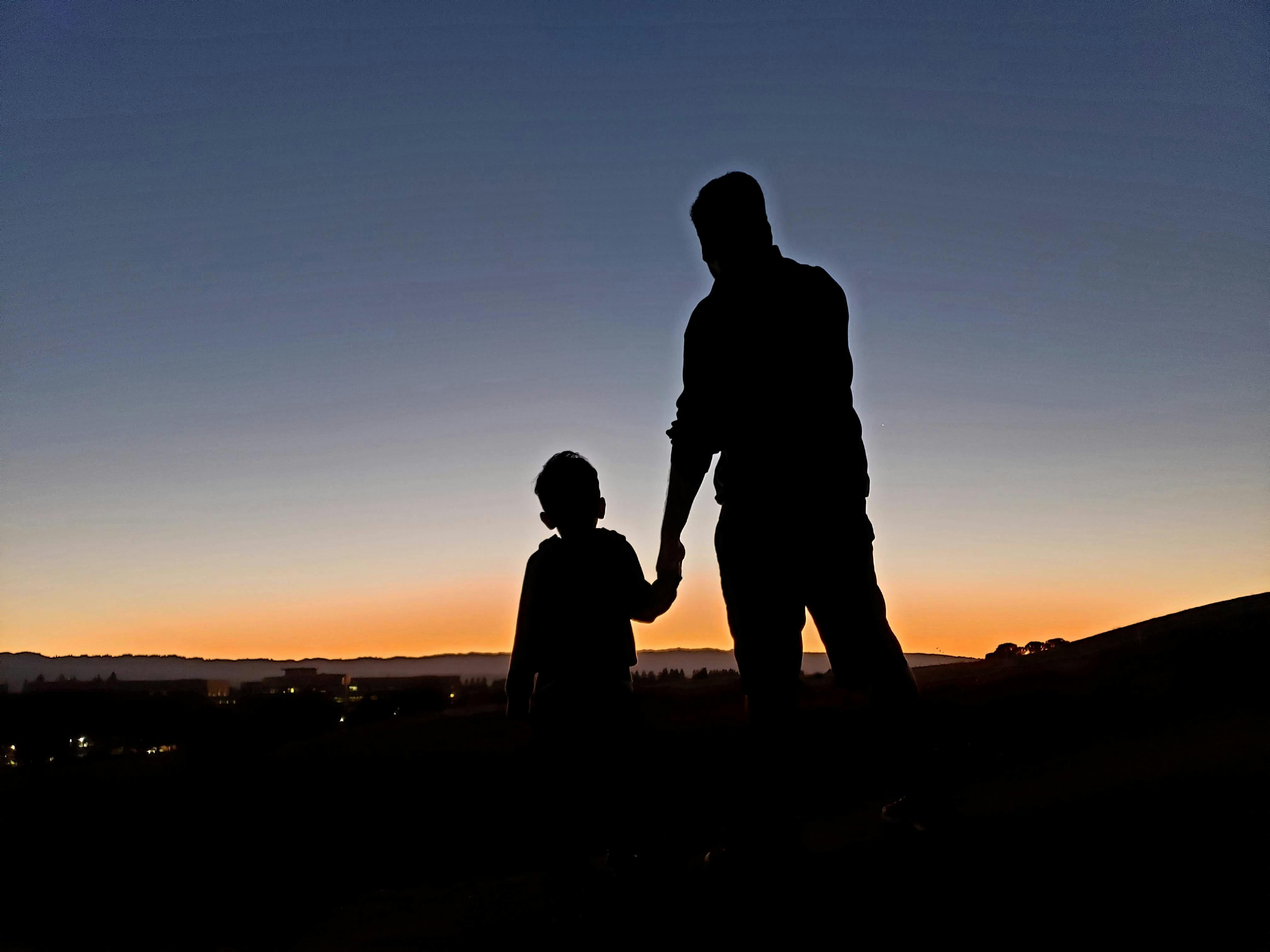Fatherhood is hard.
There are lots of reasons why—from lack of good examples to our fast-paced life to constantly seeing some other guy “doing it better” on social media. But a new perspective is helping me feel more encouraged than defeated: fathering generations.
When it comes to dads, society seems to have just two classifications: they’re either the GOAT or a goat. (Yes, I did just repeat myself. Anyone over 35, let’s pause. GOAT is an acronym meaning “greatest of all time.” Cool? Cool. Now, where were we?)
It seems like a dad is either the greatest dad ever or a scapegoat. (One more aside before we go further. Let me be perfectly clear: I’m not here to diminish anyone’s father-pain.
From the experiences of close friends and my wife, I’ve heard the deep hurt that comes from an absent or abusive father. They could do better. They should do better, and if that is your story, you absolutely deserved better.)

It’s confusing trying to be a father in a world where the only options are perfection or piss-poor—because I know I’m not either.
I tend to be a man of extremes. I’ve been both a vegetarian and a COSTCO-food-court-junkie at separate times in my life. So in hopes of avoiding piss-poor, I find myself trying to achieve some kind of level-up super-fatherhood, where I’m present for every small event, read a story every night, feel pressured to put down my work every time the kids want to play (which is even harder when you’ve unexpectedly worked from home the past 86 days. Thanks, COVID.) discipline appropriately, and capitalize on every single teaching moment. I’m currently trying to explain racism and a pandemic to two 4-year-olds and a 3-year-old.
And we probably watch way too much Disney+. But, in my defense, the classic X-Men episodes are only 20 minutes.
When your options are either GOAT or goat, you only have two paths to walk: you try way too hard to achieve the unachievable, or you give up entirely. I know dads, men my age, who’ve destroyed their lives on both of those paths. Both extremes lead to destruction. But there is a third way, a way that leads to life: fathering generations.
I’m a Bible junkie, so this might get a little nerdy for a minute. One of the first fathers we meet in The Good Book is a man named Abraham. He was specifically chosen out of all the people on the earth to become the patriarch of God’s people (eventually growing into the nation of Israel).
Here’s the deal. Abraham was a man of faith and action, but he wasn’t perfect. Far from it. Believing God’s promise to give him a child was taking too long; he fathered a kid with one of his female servants. Then feeling pressured by his wife, he sent the child and the servant away to fend for themselves in the desert. Multiple times he lied, saying his wife was his sister, in order to avoid conflict.
His son, Isaac, is mostly remembered as a passive, weak character who follows directly in his father’s footsteps—being tossed around by his family and lying to avoid conflict that could make him uncomfortable.
His son, Jacob, jumps with two feet into the family’s favorite mistakes. Throughout his life, he lies and uses deception to gain blessings and wealth from close family members. And talk about trouble in paradise: he marries two sisters, has twelve sons, and creates deep rifts when he obviously favors two children over the rest of them.

Abraham, Isaac, and Jacob were faithful and deeply flawed. That wasn’t surprising to God, who still chose to use each of them. A few hundred years later, when God’s people had grown into a large nation and been subjected to slavery in Egypt, He would call a man named Moses to rescue them. In a dramatic scene, God reveals Himself to Moses (who himself was running away from conflict and hiding in the desert) in a burning bush.
God identifies himself in a most interesting way:
“I am the God of your fathers, the God of Abraham, the God of Isaac, and the God of Jacob.” (Exodus 3:6)
God wasn’t ashamed to identify himself with these men. They weren’t the GOAT, and they weren’t scapegoats, either. God uses and chooses the less-than-perfect. Most days, despite all my efforts, I don’t feel like I’m doing enough. Thank God, that’s the type of man He seems most fond of using.
But I’m also challenged by the way the same mistakes seemed to haunt Abraham’s family for generations. Lies, deceptions, and unhealthy relationships seemingly passed from father to son to grandson. And that truth pushes me forward.
As I’m interacting with my children, I’m learning to see through them into the generations that will follow in their wake. How will this conversation affect their children or grandchildren? What am I teaching them and indirectly teaching generations to come about anger, work ethic, marriage, faith, justice?
It’s about so much more than just me and my kids at this moment. It’s about something much deeper than getting compliance out of my kids. Fathers span generations for good and bad.
In college, I struggled with a pornography addiction that nearly tanked me. I couldn’t seem to find a way forward until I stumbled upon this truth from scripture. In moments of intense struggle, I had a picture of the children I wanted to father someday. And I’d be damned if they inherited something as destructive as that from me. Overcoming addiction was a slow walk out of hell, but well over a decade later, their faces keep me on the right path.
On the other end, I’m seeing unhealthy ways that I deal with stress, anger, and disappointment being manifested in my young children. It’s pushed me to do real work on my emotions, the attitudes that I display, and the tone of voice I use. I’m modeling behavior for them, and I want it to be as healthy as possible.
I’ll admit, at first glance, this view of fathering generations did not feel encouraging. I figured I wasn’t only failing my kids but generations down the line as well. But God didn’t choose perfect men to begin his family.
Instead, he chose men who would move. And that’s something I can do.

In the end, my striving to be a perfect father is just a way to bury my insecurities that I might not be enough. But what if, instead of chasing something unattainable, I take a wider angle view to see my place in the generational line and focus not on being perfect but on improving what I learned and was given by my father? What if my children do the same? And their children?
Our family would improve with each generation and grow stronger and more faithful. And honestly, that’s what I want most. I want my children to have a better life, a more vibrant faith, and more adventures and successes than me.
Or, maybe a building metaphor can bring it home.
As fathers, we’re all building lives for our families. Good or bad, you were handed bricks from the man you call Dad. Some of us received good, sturdy bricks, things worth remembering and emulating. Some of us received bricks caked with old mortar that must be removed—addictions and habits, emotional outbursts or workaholic tendencies, distance, or absenteeism. Truth be told, we all get a mixed bag, good and bad.
It’s our job, as fathers, to build a foundation with the good bricks, remedy the bad ones, and give our children the best bricks possible to build the lives of generations to come.
My grandfather passed away a few years ago. He was a man of generations who invested faith, work ethic, and skills into my mother and then to me. A few months ago, my mom found a newspaper article written about him, dated 1957. My grandparents lived in a home my grandfather built for their entire marriage (over fifty years). The newspaper article details how, when he built the home in 1953, the bricks were already 148 years old, salvaged from a home in a nearby town that was demolished to make way for a used-car lot.
My grandfather also managed to save ash flooring, walnut boards, stairs, and risers. He built an entire home and only used one truckload of new materials. Since his full-time job was in appliance sales, the article says he often got up at 3 AM, worked by moonlight on the new house, went to his daytime job, and then worked at night.
That home provided for his wife. It was a shelter for my mother. It was home for me for over a year, and it was a home for my wife in the months before we got married. It was a place of comfort and love. It was the home where our family celebrated holidays and where, every Friday night, six grandsons would gather to eat pizza, watch TV, and play video games until we fell asleep on the couches and pull-out beds.
That home was a foundation for our family. When my grandfather passed, we sold that home to a builder to help provide for my grandmother. That builder remodeled the inside, but those 200-year-old bricks are still going strong. The home hit the market a few days ago and went pending just as quickly. The modest home my grandfather built was bought by a close cousin. Those nights my grandfather spent salvaging bricks by moonlight are still blessing our family. That’s a father of generations. More than the GOAT, or some Dad social media influencer, that’s what I want to be.

Dads, this Father’s Day, take a deep breath. You are not a scapegoat. And you don’t have to be perfect. God chooses the imperfect to do incredible things. Rather than waiting for you to improve, I believe He’s watching for you to move. To take a step toward Him. To see the larger picture, you are a part of. God has chosen you to be a link in your family chain.
To father the generations that come after you. To improve upon the bricks you were handed, and teach your children to do the same.
Be proud. You are building something amazing.
Process, journal or discuss the themes of this article - here's a few questions to get the ball rolling...
What strikes you most about this article? Why?
Describe the bricks you were given. What was good or bad about the fatherhood example set for you? Share as honestly as you can.
Imagine the house you want to build. What bricks (patterns, examples, practices) do you need to lay to do it? Be as visionary as you want—even to the point of believing miracles.
What’s one small way you can take a step towards one of those this week? Talk to your wife or another dad who can encourage you to make it happen.










